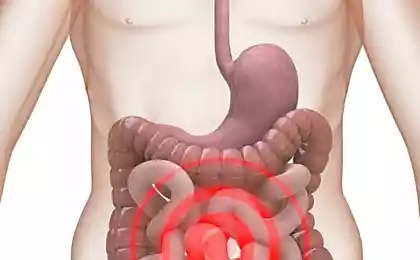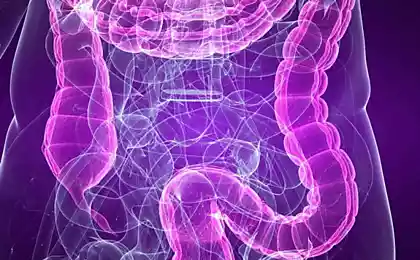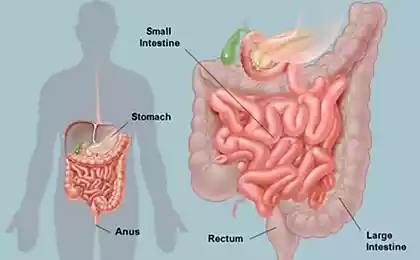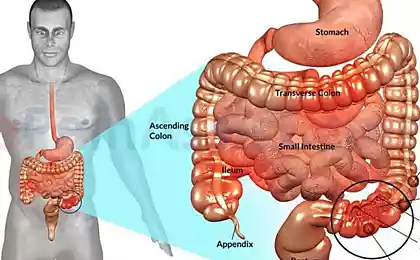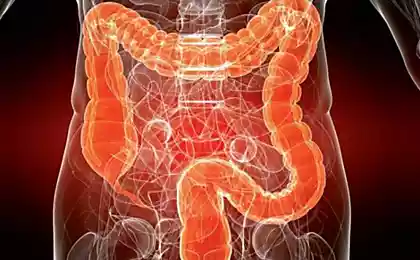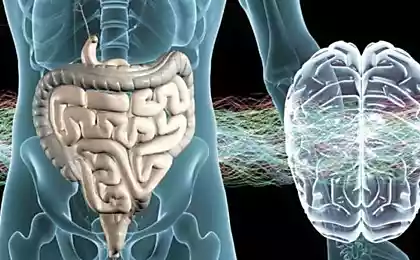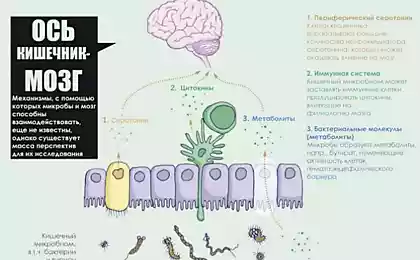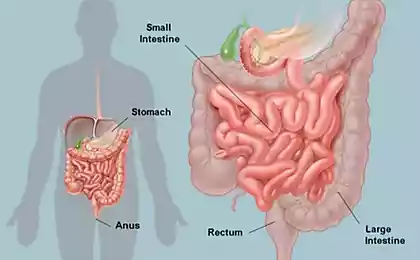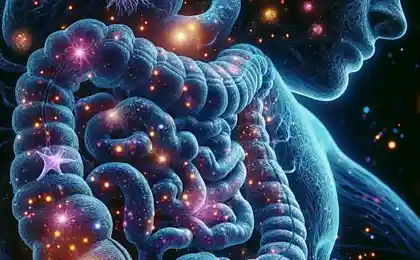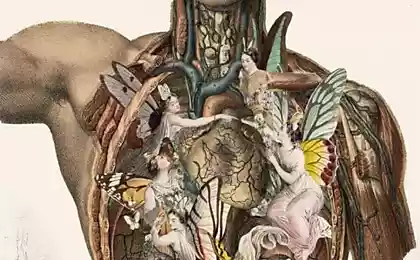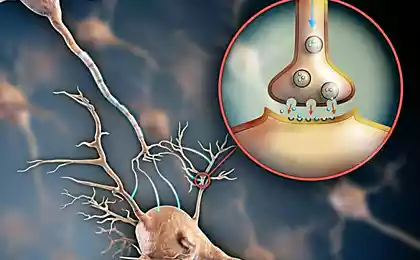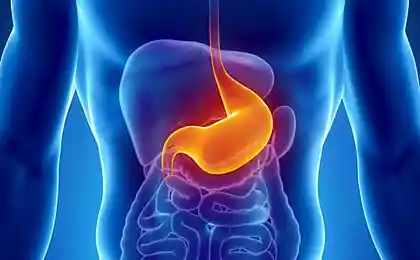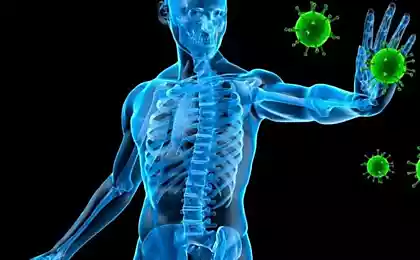573
Causes Of Irritable Bowel Syndrome
Excessive increase in the number of pathogenic microorganisms in the small intestine (Small intestinal bacterial overgrowth — SIBO) is a common cause of Irritable Bowel Syndrome — up to 84% (if used for diagnostic analysis of exhaled air).
A stool sample does not work in the diagnosis of IBS is therefore used analysis of exhaled air for the presence of hydrogen and methane.
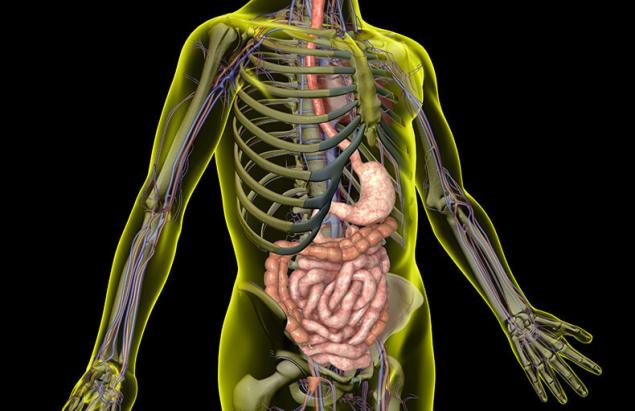
Symptoms of overgrowth of pathogenic microflora of the small intestine:
Other problems, also related to the excessive amount of pathogenic infection:
Crohn's disease, hypothyroidism, celiac disease, multiple sclerosis, lactose intolerance, chronic pancreatitis, diabetes with neuropathy, fibromyalgia, restless legs syndrome, interstitial cystitis, hepatic encephalopathy, nonalcoholic steatohepatitis.
How pathogens cause irritable bowel syndrome?
First, microorganisms that reside in the small intestine, fermented (fermented) eaten food that enters the small intestine from the stomach. As a result of fermentation produces hydrogen and methane. Gases produced a lot, they are bursting the intestine and cause symptoms such as bloating, flatulence, belching.
Gases put pressure on the intestinal wall, it causes abdominal pain and spasms (muscle reaction). Interestingly, the predominance of hydrogen is associated with diarrhea, and the predominance of methane is usually causes constipation, because methane slows the rate of movement of food in the intestine. In the presence of hydrogen and methane you can expect diarrhea, and constipation.
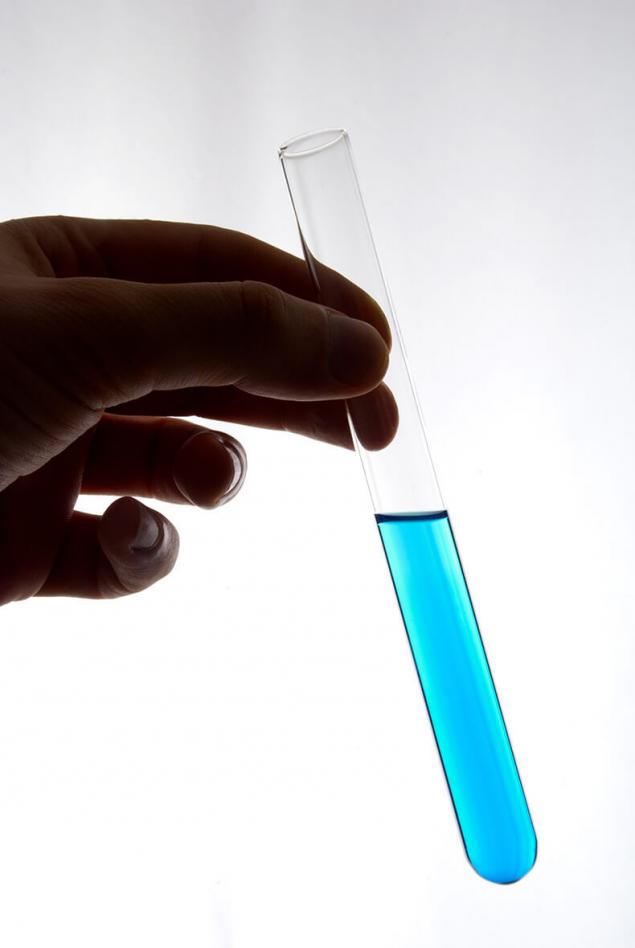
Bacteria absorb nutrients from the food that descends from the stomach. First they take vitamin B12 and iron, so the body is suffering from anemia, lack of ferritin. Because pathogenic microorganisms, which occupy the small intestines, quickly takes all the nutrients our body gets, little. A regular flow in the small intestine of new portions of food continuously feeds the bacteria and causes even greater growth of pathogenic microorganisms.
Second, pathogenic bacteria damage the intestinal wall and disturb their work. This is because the small intestine is not designed for excessive colonization of the microflora, in contrast to the colon.
Teeth hurt from indecisive people or talking about problems with teethPsychosomatics fractures
Damage lead to gastrointestinal and systemic symptoms. The major damaging factors is the bacterial decomposition of bile that disrupts the digestion of fats and leads to a deficiency of fat-soluble vitamins; absorption of bacterial disaccharide enzymes, which complicates the digestion of carbohydrates, causing fermentation and gas formation; damage to the walls of the intestines lead to increased intestinal permeability ("leaky gut"), and again this is fraught with many system-wide symptoms.published
Source: www.horosheezdorovje.ru/prichina-srk/
A stool sample does not work in the diagnosis of IBS is therefore used analysis of exhaled air for the presence of hydrogen and methane.

Symptoms of overgrowth of pathogenic microflora of the small intestine:
- flatulence and flatulence
- burp
- pain and cramping in the abdomen
- heartburn
- nausea
- anemia
- common symptoms: headache, joint and muscle pain, fatigue, rosacea
Other problems, also related to the excessive amount of pathogenic infection:
Crohn's disease, hypothyroidism, celiac disease, multiple sclerosis, lactose intolerance, chronic pancreatitis, diabetes with neuropathy, fibromyalgia, restless legs syndrome, interstitial cystitis, hepatic encephalopathy, nonalcoholic steatohepatitis.
How pathogens cause irritable bowel syndrome?
First, microorganisms that reside in the small intestine, fermented (fermented) eaten food that enters the small intestine from the stomach. As a result of fermentation produces hydrogen and methane. Gases produced a lot, they are bursting the intestine and cause symptoms such as bloating, flatulence, belching.
Gases put pressure on the intestinal wall, it causes abdominal pain and spasms (muscle reaction). Interestingly, the predominance of hydrogen is associated with diarrhea, and the predominance of methane is usually causes constipation, because methane slows the rate of movement of food in the intestine. In the presence of hydrogen and methane you can expect diarrhea, and constipation.

Bacteria absorb nutrients from the food that descends from the stomach. First they take vitamin B12 and iron, so the body is suffering from anemia, lack of ferritin. Because pathogenic microorganisms, which occupy the small intestines, quickly takes all the nutrients our body gets, little. A regular flow in the small intestine of new portions of food continuously feeds the bacteria and causes even greater growth of pathogenic microorganisms.
Second, pathogenic bacteria damage the intestinal wall and disturb their work. This is because the small intestine is not designed for excessive colonization of the microflora, in contrast to the colon.
Teeth hurt from indecisive people or talking about problems with teethPsychosomatics fractures
Damage lead to gastrointestinal and systemic symptoms. The major damaging factors is the bacterial decomposition of bile that disrupts the digestion of fats and leads to a deficiency of fat-soluble vitamins; absorption of bacterial disaccharide enzymes, which complicates the digestion of carbohydrates, causing fermentation and gas formation; damage to the walls of the intestines lead to increased intestinal permeability ("leaky gut"), and again this is fraught with many system-wide symptoms.published
Source: www.horosheezdorovje.ru/prichina-srk/
